The #1 Sunday Times and International Bestseller from ‘the most influential public intellectual in the Western world right now’ (New York Times)
What are the most valuable things that everyone should know?
Acclaimed clinical psychologist Jordan Peterson has influenced the modern understanding of personality, and now he has become one of the world’s most popular public thinkers, with his lectures on topics from the Bible to romantic relationships to mythology drawing tens of millions of viewers. In an era of unprecedented change and polarizing politics, his frank and refreshing message about the value of individual responsibility and ancient wisdom has resonated around the world.
In this book, he provides twelve profound and practical principles for how to live a meaningful life, from setting your house in order before criticising others to comparing yourself to who you were yesterday, not someone else today. Happiness is a pointless goal, he shows us. Instead we must search for meaning, not for its own sake, but as a defence against the suffering that is intrinsic to our existence.
Drawing on vivid examples from the author’s clinical practice and personal life, cutting edge psychology and philosophy, and lessons from humanity’s oldest myths and stories, 12 Rules for Life offers a deeply rewarding antidote to the chaos in our lives: eternal truths applied to our modern problems.
Read more
Disclaimer Note : This post may contain affiliate links, meaning I get a commission if you decide to purchase through my links, at no cost to you.


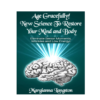
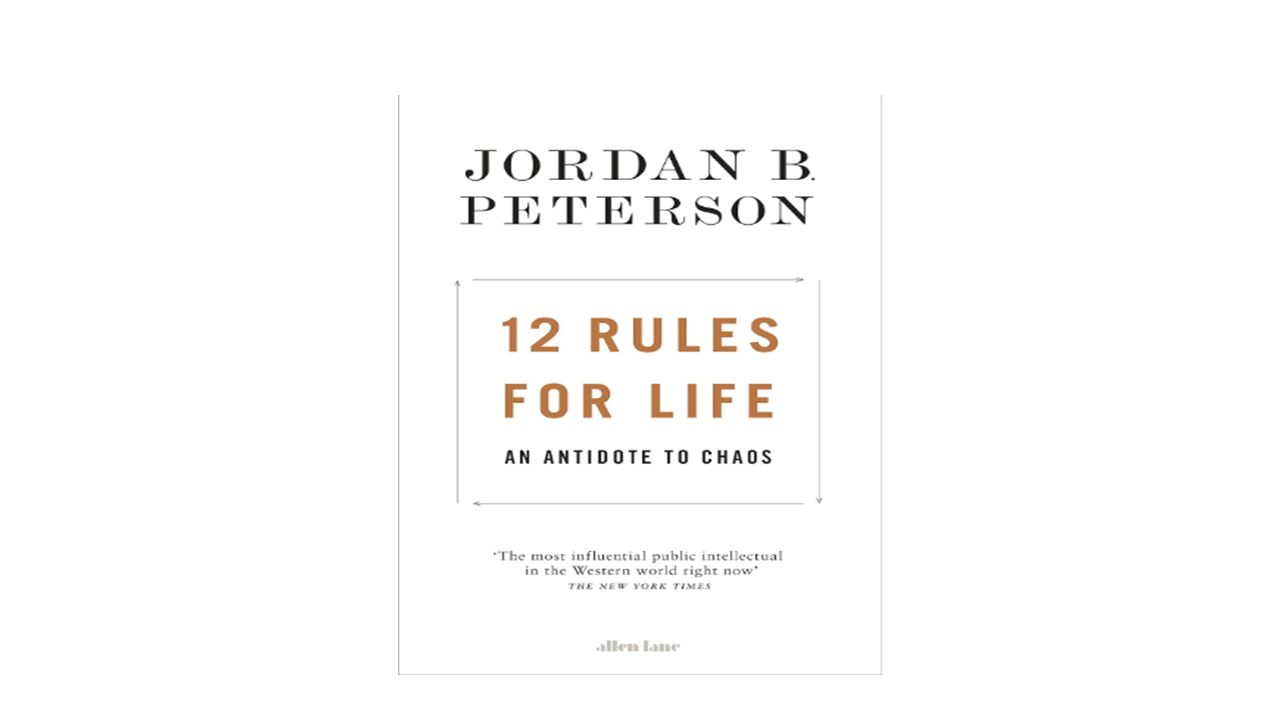






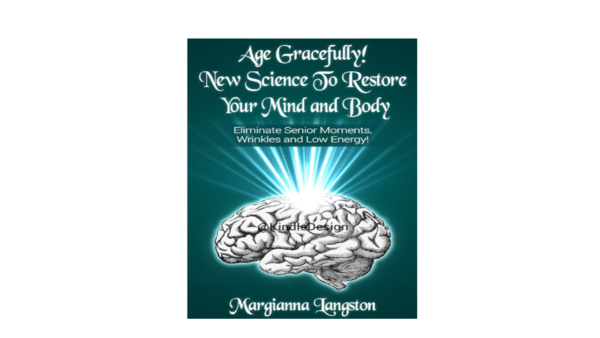



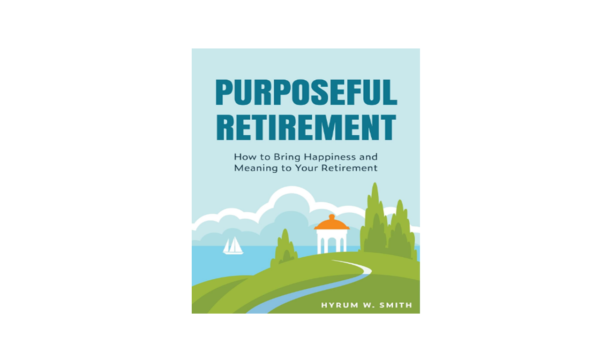

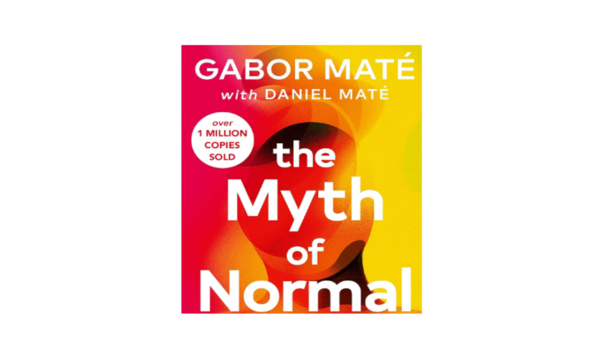

Marcelo Fortio –
arrived in perfect condition, i am only half way throw but the book is amazing and peterson is amazing
Matthew Hosier –
Jordan B. Peterson has been much in the news. His courageous stand against the totalitarianism inherent in Bill C-16 (google it if you don’t know what I’m talking about) suddenly made him a public figure and then with that interview everyone was talking about him. Peterson did that interview while in the UK publicising his book, 12 Rules for Life: An antidote to chaos. It has been a long time since I’ve read a book that has caused me so many out-loud oohs, ahs, ahas, sighs, and laughs. Here is a chapter by chapter summary.
Rule 1: Stand up straight with your shoulders back
This is the chapter about lobsters.
Cathy Newman and other commentators have been choking on the crustaceans Peterson offers as evidence for his first rule, but I wonder if they have actually read the chapter. It’s all pretty self-explanatory and obvious: dominance hierarchy is “an essentially permanent feature of the environment to which all complex life has adapted.” That’s true for lobsters, and it’s true for humans: “It’s permanent. It’s real. The dominance hierarchy is not capitalism…It’s not the patriarchy.”
If you’re at the bottom of the dominance hierarchy – as either lobster or human – life is harder on you. Low status lobsters and humans produce less serotonin. “Low serotonin means decreased confidence. Low serotonin means more response to stress and costlier physical preparedness for emergency…higher serotonin levels…are characterized by less illness, misery and death.”
So what to do? Put your shoulders back! “Walk tall and gaze forthrightly ahead. Dare to be dangerous. Encourage the serotonin to flow plentifully through the neural pathways desperate for its calming influence.”
Rule 2: Treat yourself like someone you are responsible for helping
This is the chapter that explains why people will buy prescription medicine for their dog, and carefully administer it, but fail to do the same for themselves.
It boils down to this: “Why should anyone take care of anything as naked, ugly, ashamed, frightened, worthless, cowardly, resentful, defensive and accusatory as a descendant of Adam? Even if that thing, that being, is himself? And I do not mean at all to exclude women with this phrasing.”
That humans are like this provides Peterson with what I think might be the most important insight into the problem of evil since Augustine identified original sin with pride. This is how JP describes it: “We know exactly how and where we can be hurt, and why. That is as good a definition as any of self-consciousness. We are aware of our own defencelessness, finitude and mortality. We can feel pain, and self-disgust, and shame, and horror, and we know it. We know what makes us suffer. We know how dread and pain can be inflicted on us – and that means we know exactly how to inflict it on others. We know we are naked, and how that nakedness can be exploited – and that means we know how others are naked, and how they can be exploited.”
The solution? “You could help direct the world, on its careening trajectory, a bit more toward Heaven and a bit more away from Hell. Once having understood Hell, researched it, so to speak – particularly your own individual Hell – you could decide against going there or creating that. You could aim elsewhere. You could, in fact, devote your life to this. That would give you a Meaning, with a capital M. That would justify your miserable existence. That would atone for your sinful nature, and replace your shame and self-consciousness with the natural pride and forthright confidence of someone who has learned once again to walk with God in the Garden.”
Rule 3: Make friends with people who want the best for you
This is the chapter about not casting your pearls before swine.
Sometimes helping is beyond us.
“But Christ himself, you might object, befriended tax-collectors and prostitutes. How dare I cast aspersions on the motives of those who are trying to help? But Christ was the archetypal perfect man. And you’re you. How do you know that your attempts to pull someone up won’t instead bring them – or you further down?”
Ouch.
So, how to help? “Before you help someone, you should find out why that person in in trouble.” The thing is, that often takes more effort than just helping – it’s easier to throw money at a problem than really understand why the problem is there. But that is to cast our pearls before swine – and it was Jesus, not just Peterson, who warned us against that.
And help yourself, by making friends with people who are going to genuinely help you – with people who are prepared to put the work in, because they want the best for you.
Rule 4: Compare yourself to who you were yesterday, not to who someone else is today
This is the chapter about silencing your internal critic.
Is this the very heart of Petersonism? Perhaps so. Certainly, it’s something I’ve heard him talk about in pretty much every clip and lecture of his I’ve listened to. It’s this:
“Aim small. You don’t want to shoulder too much to begin with, given your limited talents, tendency to deceive, burden of resentment, and ability to shirk responsibility. Thus, you set the following goal: by the end of the day, I want things in my life to be a tiny bit better than they were this morning. Then you ask yourself, ‘What could I do, that I would do, that would accomplish that, and what small thing would I like as a reward?’ Then you do what you have decided to do, even if you do it badly. Then you give yourself that damn coffee, in triumph. Maybe you feel a bit stupid about it, but you do it anyway. And you do the same thing tomorrow, and the next day, and the next. And, with each day, your baseline of comparison gets a little higher, and that’s magic. That’s compound interest. Do that for three years, and your life will be entirely different. Now you’re aiming for something higher. Now you’re wishing on a star. Now the beam is disappearing from your eye, and you’re learning to see. And what you aim at determines what you see. That’s worth repeating. What you aim at determines what you see.”
Peterson is brutally honest about the human condition: “What do you know about yourself? You are, on the one hand, the most complex thing in the entire universe, and on the other, someone who can’t even set the clock on your microwave. Don’t over-estimate your self-knowledge.”
So, you – amazing, ignorant you – aim at something, and “compare yourself to who you were yesterday, not to who someone else is today.”
Rule 5: Do not let your children do anything that makes you dislike them
This is the chapter every parent needs to read.
If you are a parent you must read it. And if you are not a parent but know someone who is, you need to persuade them to read it.
Peterson sees, “today’s parents as terrified by their children.” We are heirs of the revolutions of the 1960s and have forgotten what children need and what parents are meant to provide. What children need is parents who will give them the right kind of attention, and that means parents remembering that they are parents. “A child will have many friends, but only two parents – if that – and parents are more, not less, than friends. Friends have very limited authority to correct. Every parent therefore needs to learn to tolerate the momentary anger or even hatred directed towards them by their children, after necessary corrective action has been taken.”
Parents must learn to correct their children, and socialise them. After all, “Two-year-olds, statistically speaking, are the most violent of people.” If parents don’t take this responsibility seriously, their children will be disciplined by the much harsher realities of the world. “If a child has not been taught to behave properly by the age of four, it will forever be difficult for him or her to make friends. The research literature on this is quite clear.”
So what should parents teach their kids? Peterson suggests the following:
“Do not bite, kick or hit, except in self-defence. Do not torture or bully other children, so you don’t end up in jail. Eat in a civilised and thankful manner, so that people are happy to have you at their house, and pleased to feed you. Learn to share, so other kids will play with you. Pay attention when spoken to by adults, so they don’t hate you and might therefore deign to teach you something. Go to sleep properly, and peaceably, so that your parents can have a private life and not resent your existence. Take care of your belongings, because you need to learn how and because you’re lucky to have them. Be good company when something fun is happening, so that you’re invited for the fun. Act so that other people are happy you’re around, so that people will want you around. A child who knows these rules will be welcome everywhere.”
And that is why so many children are unwelcome, pretty much everywhere. If you are a parent, don’t let this be your child.
Rule 6: Set your house in perfect order before you criticize the world
This is the chapter that tells you to take responsibility for yourself.
“Don’t blame capitalism, the radical left, or the iniquity of your enemies. Don’t reorganise the state until you have ordered your own experience. Have some humility. If you cannot bring peace to your own household, how dare you try to rule a city?”
Rule 7: Pursue what is meaningful (not what is expedient)
This is the longest and densest chapter.
“Life is suffering. That’s clear. There is no more basic, irrefutable truth. It’s basically what God tells Adam and Eve, immediately before he kicks them out of Paradise.” The way to deal with this is by learning delayed gratification – that is, to work and to sacrifice. Be Abel, not Cain. “Cain turns to Evil to obtain what Good denied him, and he does it voluntarily, self-consciously and with malice aforethought.” Don’t do that. Aim higher.
It is here that Peterson gives the clearest definition of his ethic, his “fundamental moral conclusions”:
“Aim up. Pay attention. Fix what you can fix. Don’t be arrogant in your knowledge. Strive for humility, because totalitarian pride manifests itself in intolerance, oppression, torture and death. Become aware of your own insufficiency – your cowardice, malevolence, resentment and hatred. Consider the murderousness of your own spirit before you dare accuse others, and before you attempt to repair the fabric of the world. Maybe it’s not the world that’s at fault. Maybe it’s you. You’ve failed to make the mark. You’ve missed the target. You’ve fallen short of the glory of God. You’ve sinned. And all of that is your contribution to the insufficiency and evil of the world. And, above all, don’t lie. Don’t lie about anything, ever. Lying leads to Hell. It was the great and the small lies of the Nazi and Communist states that produced the deaths of millions of people.”
And that leads us to the next chapter…
Rule 8: Tell the truth – or, at least, don’t lie
This is the chapter to put courage into your moral spine.
We lie in order to make others like us more than they otherwise would, to make ourselves look better, to avoid difficult tasks or conversations – because we think lying makes life easier. But lying makes things worse:
“If you say no to your boss, or your spouse, or your mother, when it needs to be said, then you transform yourself into someone who can say no when it needs to be said. If you say yes when no needs to be said, however, you transform yourself into someone who can only say yes, even when it is very clearly time to say no. If you ever wonder how perfectly ordinary, decent people could find themselves doing the terrible things the gulag camp guards did, you now have your answer. By the time no seriously needed to be said, there was no one left capable of saying it.”
Rule 9: Assume that the person you are listening to might know something you don’t
This is the chapter Cathy Newman should have read.
Peterson is not only an academic, he is a clinical psychologist, and he knows how to listen. He has some things to teach those of us who aspire to hear people.
Peterson recounts the case of ‘Miss S’ who came to see him, saying, “I think I was raped. Five times.” Peterson explains how he could have convinced her of the truth, which could have been either, “You are an innocent victim” or “You have made yourself a victim.” To have done so would have been to give her advice; but Peterson didn’t give advice, he listened.
Peterson gives advice (ha!) about how to listen well. And it is this that Cathy Newman should have read and applied before tangling with the clinical psychologist:
“When someone opposes you, it is very tempting to oversimplify, parody, or distort his or her position. This is a counterproductive game, designed both to harm the dissenter and unjustly raise your personal status. By contrast, if you are called upon to summarize someone’s position, so that the speaking person agrees with that summary, you may have to state the argument even more clearly and succinctly than the speaker has yet managed. If you first give the devil his due, looking at his arguments from his perspective, you can (1) find the value in them, and learn something in the process, or (2) hone your positions against them (if you still believe they are wrong) and strengthen your arguments further against challenge. This will make you much stronger. Then you will no longer have to misrepresent your opponent’s position (and may well have bridged at least part of the gap between the two of you). You will also be much better at withstanding your own doubts.”
Rule 10: Be precise in your speech
This is the chapter that might save your marriage.
The world is only simple when it is working. That is so obvious we miss it all the time. Peterson illustrates with the story of a woman who believes herself to be in a happy, stable, marriage, only to discover her husband is having an affair. Suddenly chaos roars, the dragon is unleashed. This is what happens when we don’t communicate, precisely.
“One day it bursts forth, in a form that no one can ignore. It lifts the very household from its foundations. Then it’s an affair, or a decades-long custody dispute of ruinous economic and psychological proportions. Then it’s the concentrated version of the acrimony that could have been spread out, tolerably, issue by issue, over the years of the pseudo-paradise of the marriage. Every one of the three hundred thousand unrevealed issues, which have been lied about, avoided, rationalized away, hidden like an army of skeletons in some great horrific closet, bursts forth like Noah’s flood, drowning everything. There’s no ark, because no one built one, even though everyone felt the storm gathering.”
So, how about this suggestion?
“Maybe a forthright conversation about sexual dissatisfaction might have been the proverbial stitch in time – not that it would be easy. Perhaps madame desired the death of intimacy, clandestinely, because she was deeply and secretly ambivalent about sex. God knows there’s reason to be. Perhaps monsieur was a terrible, selfish lover. Maybe they both were. Sorting that out is worth a fight, isn’t it? That’s a big part of life, isn’t it? Perhaps addressing that and (you never know) solving the problem would be worth two months of pure misery just telling each other the truth (not with intent to destroy, or attain victory, because that’s not the truth: that’s just all-out war).”
Like I say, this chapter could save your marriage.
Rule 11: Do not bother children when they are skateboarding
This is the chapter that refutes the “postmodern/neo-Marxist claim that Western culture, in particular, is an oppressive structure, created by white men to dominate and exclude women.”
Boys and girls are different. Sexual difference is biological in basis. Sexual difference is not a cultural construct. The current cultural narrative that denies these things is bad for boys – and for girls. Boys don’t know how to compete when they are forced to compete in the girls’ hierarchy. “Girls can win by winning in their own hierarchy – by being good at what girls value, as girls. They can add to this victory by winning in the boys’ hierarchy. Boys, however, can only win by winning in the male hierarchy. They will lose status, among girls and boys, by being good at what girls value. It costs them in reputation among the boys, and in attractiveness among the girls.” If we insist on going down this path, soon there will be no men left that any self-respecting woman would want to form a relationship with.
It was alarming to hear the president of the Marxist Society at the university where my eldest daughter is a student, defend and promote communism on national radio recently. Marxist ideology always ends in starvation and murder. That has been demonstrated, irrefutably, at the cost of millions of lives. Yet it is this very philosophy that underpins so many current cultural developments. It is Marxism filtered through the French intellectuals and now dominant in our universities and media that says things like, “There are ‘women’ only because men gain by excluding them. There are ‘males and females’ only because members of that heterogeneous group benefit by excluding the tiny minority of people whose biological sexuality is amorphous.” Peterson retorts, “It is almost impossible to over-estimate the nihilistic and destructive nature of this philosophy. It puts the act of categorization itself in doubt. It negates the idea that distinctions might be drawn between things for any reasons other than that of raw power.”
And then he deals with the “equal pay for equal work” argument. You should read that.
This is a powerful chapter, that deserves careful reading, not angry, knee-jerk, liberal reaction. The practical consequences are profound: “If you think tough men are dangerous, wait until you see what weak men are capable of.”
Rule 12: Pet a cat when you encounter one on the street
This is the chapter that will make you cry.
The inevitability of suffering is a recurring theme for Peterson. Here he deals with it through the suffering of his daughter, who endured the misery of severe polyarticular juvenile idiopathic arthritis.
How are we supposed to make sense of suffering? How are we meant to cope with it?
Peterson says that part of the answer is this: “Being of any reasonable sort appears to require limitation.” It is our human limitations that make us human, and that makes suffering something we have to face. He offers wise counsel for those caught in the maelstrom of suffering – counsel about how to talk, and to listen. And he says to stop and stroke a cat: “And maybe when you are going for a walk and your head is spinning a cat will show up and if you pay attention to it then you will get a reminder for just fifteen seconds that the wonder of Being might make up for the ineradicable suffering that accompanies it.”
Coda
This is the chapter in which Peterson tells us what he hopes for – he hopes for the best.
So…
So what to make of all this?
There are incredible depths of wisdom here. There is much to glean, much to feed on.
Peterson is courageous, and clear. He loves people, and hates tyranny. He is engaging and funny. Thoughtful and emotional. More of us need to share something of his courage and clarity. He is kicking down doors we should be unafraid to walk through.
In fact, my most serious complaint about 12 Rules is that the fascinating endnotes are endnotes, rather than easier to access footnotes; and that there is an incredibly irritating misnumbering of these from note 33. I don’t know how that slipped through the net, but as Peterson often states, things fall apart, and chaos is always waiting to overwhelm us. What we need is order. 12 Rules will help you understand that.
Glenn –
yes
jenn rosales –
Muy bueno
Julia rostas –
A must read if you follow Jordan Peterson! Such a well written book and a great read. Very insightful
PatrickHGormley –
Jordan Peterson is a clinical psychologist and a professor of psychology. He is very popular among people with more traditional outlooks.
He wrote the bestseller 12 Rules for Life: An Antidote to Chaos. It is a self-help book that tries to avoid the pitfalls of this subject by giving sound commonsense advice. God, remarkably, features significantly in this book. Unlike most self-help books, it warns that happiness is hard to hold on to and there are no guarantees. He has been accused of misogyny in his book.
His 12 rules are about not guaranteeing happiness but about putting no obstacles in its way.
His twelve rules have been summarised as
1. Stand up straight with your shoulders back
2. Treat yourself like someone you are responsible for helping
3. Make friends with people who want the best for you
4. Compare yourself to who you were yesterday, not to who someone else is today
5. Do not let your children do anything that makes you dislike them
6. Set your house in perfect order before you criticize the world
7. Pursue what is meaningful (not what is expedient)
8. Tell the truth – or, at least, don’t lie
9. Assume that the person you are listening to might know something you don’t
10. Be precise in your speech
11. Do not bother children when they are skateboarding
12. Pet a cat when you encounter one on the street
It is good that God does not occur in this list. But he does emphasise God at times in the book. The emphasis on finding meaning in service to God is erroneous. He says that God’s existence cannot be shown to be true but says we must live as if there is a God. That is in fact a call to embrace idolatrous superstition. The only right way to serve a God is by seeing him as real and doing all out of love for him. If he is not real we are wasting our love on him and that is cruel and what about those who emulate us? It is one thing to say you cannot be good without God but another to say you cannot be good without the idea of God. Its a recipe for religious fascism. There is less humility in this than somebody saying, “I know Santa Claus lives on the moon and thinks about me night and day.” God by definition is all-love and all important. You cannot truly love God if you use him or the idea of him as a crutch for you cannot do good otherwise. You would end up intolerant of secularism and atheism. The crutch idea of God leads to obscurantism and censorship. If God is just in your head then you create this idol and it says things about you and only you. It is not about you.
The only thing that can be absolutely central is principle. Even God cannot create principle. Religion says his nature is fair and loving in principle and he has not made his nature what it is. If you say morality is just a fiction you are making a moral judgment against anybody who preaches morality and against their moral systems. So principle forces us to think moral. We cannot truly be amoral. This shows there is more to us than fame, fortune and even family and God. Principle is the one thing that is unshakeablely true.
What could a Christian think of the book? Rules 3, 6, 9, 10 contradict what the gospels say about Jesus. 2 is better than love your neighbour as yourself but it too contradicts Jesus who was not saying you are to love yourself but that you do love yourself and must love others the same. The command is about others.
5 by the way contradicts how Jesus told the Jews to stone a woman to death for adultery but only if they were worthy – he meant what he said for we are told he was never conniving or trying to manipulate them not to stone her. His statement is approval for the savage laws of the Old Testament which he said was God’s unerring word. A spiritual teacher approving things like that needs to be dismissed on the spot instead of Christians trying to excuse it.
The Christian faith spends more time making historical claims than on spiritual stuff. The resurrection of Jesus is central and compared to it the moral teachings of Jesus do not matter. The faith says Jesus rose bodily and transformed from the grave but even the gospels just say the body was not in the tomb and do not comment on why. Visions are not enough to base a resurrection on but that is what we have here.
The gospel writers offer not evidence for the resurrection of Christ but an interpretation they put on what they think happened. Why should we accept theirs for millions of interpretations are possible? They are the ones that say there is only one explanation so it is up to them to refute all the alternatives even if it takes to the end of the millennium so they have no right to our faith. Worse, there is no proof that the accounts are eyewitness accounts. Christians say they are. They seem to think that eyewitness accounts that have been worked over will do. They will not. We don’t want something that was edited. We want the original unaltered written accounts and we want assurance that the witnesses checked over them before they were made public. They can’t give us any of that.
Faith in somebody’s interpretation of a revelation or miracle from God is not the same as faith in the revelation or God. It is not faith in them at all but in the person doing the interpreting.
Peterson has not as yet made any profession of Christian belief. Let us hope that never happens.
Anyway let us quote Peterson.
Quote: Cultivating judgment about the difference between virtue and vice is the beginning of wisdom, something that can never be out of date. By contrast, our modern relativism begins by asserting that making judgments about how to live is impossible, because there is no real good, and no true virtue (as these too are relative). Thus relativism’s closest approximation to “virtue” is “tolerance.”Only tolerance will provide social cohesion between different groups, and save us from harming each other. On Facebook and other forms of social media, therefore, you signal your so-called virtue, telling everyone how tolerant, open and compassionate you are, and wait for likes to accumulate. (Leave aside that telling people you’re virtuous isn’t a virtue, it’s self-promotion. Virtue signalling is not virtue. Virtue signalling is, quite possibly, our commonest vice.) Intolerance of others’ views (no matter how ignorant or incoherent they may be) is not simply wrong; in a world where there is no right or wrong, it is worse: it is a sign you are embarrassingly unsophisticated or, possibly, dangerous.
Comment: Relativism should ask why social cohesion matters if all is relative! Relativists are full of pride. If people who claim to know what is moral are bad they are worse. Relativists think they make things bad by thinking them bad. That is magic not morality.
Why is telling people you are virtuous not a virtue? Why is it self-promotion? If it is self-promotion disguised as virtue then it becomes deception as well.
Also tolerance if it is your only virtue is not really a virtue then. It is not virtuous to abandon and reject virtues in favour of one. It is vice.
Decide: morality is either really true (objective morality) or you can make it really true (relativism). Relativism trades objective morality for another objective morality that you make up. Pure relativists do not exist – they just are relativists when it suits them.
Quote: An idea has an aim. It wants something. It posits a value structure. An idea believes that what it is aiming for is better than what it has now.
An idea is a personality, not a fact. When it manifests itself within a person, it has a strong proclivity to make of that person its avatar: to impel that person to act it out.
Comment: Ideas reflect the human tendency to think that all things are just getting that bit better. That is religion’s selling point but it remains a non-religious matter. It is psychology – or human nature. Religion hijacks human nature. Religion is fundamentally a lie.
Peterson is right that we should not see an idea as a thing. It is a personality – it is what a personality gives birth to and makes part of itself. The warning is that we must be careful to be truthful and servants of truth for if your ideas are you then it follows that human nature will be unable to truthfully separate hating you from hating your ideas. It becomes another refutation of love the sinner but hate the sin. If hating sin and sinner is inevitable then you blame the sinner for being hated as well. You blame them not you.
If you are a channel for ideas you want to be a channel not a slave. You won’t want your bad ideas to harm you or put you at risk. So investigation and revision of belief would be essential.
Quote: Each human being has an immense capacity for evil. Each human being understands, a priori, perhaps not what is good, but certainly what is not. And if there is something that is not good, then there is something that is good. If the worst sin is the torment of others, merely for the sake of the suffering produced— then the good is whatever is diametrically opposed to that. The good is whatever stops such things from happening.
Comment: Some feel that as our potential for evil is so big that is why even a small sin is no trivial matter. Protestantism says that all sin is an abomination before God. St Paul wrote that sin is in him even though he can find no trace of it when he examines himself but he knows it is there hiding itself. Jesus said that nobody is good only God.
According to our quote, our morality detectors are better for saying what is not good not what is good. That means that non-judgemental people are liars. They are at their core judgers who think they know enough about everybody else’s life to form a negative opinion of them or what they do. In reality judging somebody’s deeds when you do not and cannot know the whole story is using their misdeeds or perceived misdeeds as a grounds for attacking them and sending “bad energy” to them.
Trying to be non-judgemental when it is not your nature or even possible is an act of violence and violence leads to violence. It may explain why accepting people turn on you fast when they find a bandwagon to get on. That is why religions of peace often surprise you when the climate is right for them to show their true colours.
Quote: Psychotherapy is not advice. Advice is what you get when the person you’re talking with about something horrible and complicated wishes you would just shut up and go away. Advice is what you get when the person you are talking to wants to revel in the superiority of his or her own intelligence. If you weren’t so stupid, after all, you wouldn’t have your stupid problems.
Comment: Praying to God for guidance is an even bigger way of implying that suffering people have only themselves to blame.
OVERALL I find the book insightful and interesting. It just gives us ideas that need teasing out and deeper reflection. That is what I have tried to do and highly recommend the book.
Sue –
top buch. eine empfehlung für einfach jeden.